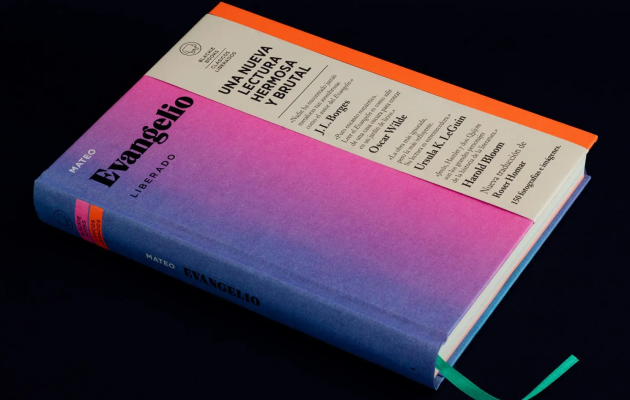29 OCTOBER 2025 · 17:12 CET
Catholic Spain has ceased to be Christian and is now a model of secular modernity in Europe. This was the message repeated over and over again by politicians and the media.
The dictatorship between 1939 and 1975, which merged the Roman Catholic Church and the state, was the perfect vaccine against religion in the transition to democracy: organised religion was condemned to ostracism. Faith, at least Christian faith, is a vestige of the past to be discarded. That has been the implicit message for the last 40 years, from radio talk shows to university classrooms, from barroom conversations to the columns of the most respected journalists.
And yet, in the autumn of 2025, all of Spain is talking about a surprising resurgence of interest in faith.
First, in May there was the extensive coverage of the election of the new Pope in neighbouring Italy. Then, in September and October, there was the ‘alert’ about the growth of evangelical churches, launched simultaneously on public and private television, in the main left-wing newspaper, in a leading conservative publication. A chance for evangelical Christians to explain what they really believe, beyond stereotypes and disinformation.
Then, this week, the album by the most influential Spanish singer of recent years, Rosalía, appears emulating a nun while explaining in a podcast recorded at her home that she feels an enormous void that nothing can fill, which she believes comes from God.

Just a few days later, another well-known figure, former Brazilian footballer Dani Alves, champion of everything with FC Barcelona, appears in an evangelical church in Girona explaining his conversion to Christianity, after spending 14 months in preventive detention for a sexual assault in a nightclub that ended his career and his public image, despite later being acquitted by a higher court.
One of the queens of morning television, Ana Rosa Quintana, interviewed an evangelical pastor on her prime-time morning show on Telecinco to understand the phenomenon, commented on her "surprise", but later added: "Clinging to faith is great, both in the evangelical and Catholic churches; in the end, we are all Christians".
Meanwhile, TV3, the Catalan public television station, invited a young evangelical pastor to the set to hear his perspective. Guido Groeneveld explained that the message of the gospel that Dani Alves seemed to have accepted has to do with a God who gives himself through his son Jesus Christ so that a direct relationship with Him is possible, and that Rosalía's words about emptiness are actually the experience of every person who seeks to satisfy their desire for purpose with a career, a family, sex or success.
Another prominent journalist, Carlos Franganillo, said on his Telecinco news programme: "A new generation of young people is rediscovering the sacred. Faith has become a trend, and also a refuge: young people who find spirituality in films such as Los Domingos, in Rosalía's songs, or in digital altars where influencers preach the beauty of believing".Estamos tan de vuelta que asusta. pic.twitter.com/9CDSSAdlF9
Newspaper El País reports that "something is changing. For some time now, there has been a growing trend towards the use of religious aesthetics in almost all areas, and this may be more than just a visual preference".
In La Vanguardia, its chief analyst, Enric Juliana, considers that "young people are once again interested in religion, there are various signs of this, and among non-believers there is interest in the social doctrine outlined by Francis and reaffirmed by Leo XIV". Newspaper El Mundo also points solely to the majoritarian confession, interpreting that ‘Catholicism is suddenly in vogue.’
But broadening the focus, newspaper Público observes that "faith in God is resurgent in the West, much more so among young people than in other generations, because it offers a moral example, but also a lifeline to hold on to; the neoliberal project is falling apart, leaving corpses in its wake".
The Conversation describes that "christiancore turns the symbols of Christianity – veils, crosses, white robes or biblical phrases – into visual language. It is a form of stylised spirituality that transforms faith into image and devotion into aesthetics, reflecting the desire to find meaning in an environment dominated by appearance".
In Spain, all this is supported by government data, which in its surveys confirms an increase in young people who identify as Catholic, on the one hand, and an increase in evangelical places of worship, the fastest-growing faith group in Spain, on the other.
Among those who have discovered faith is, for example, a highly followed business influencer, Izanami, who recounts her profound conversion to the gospel (to the point of changing her stage name to Sarab Rey). She attends an evangelical church in Madrid, constantly talks about the Bible on her social media, and is coordinating with others to share the ‘light’ on Halloween these days.
Una publicación compartida por Izanami Martinez (@sarab.rey)
Actors such as the well-known Jaime Lorente have explained in a podcast on faith and culture the need to carry the cross every day.
As Catalan public television summarises it: "Faith is no longer taboo in culture: religious themes are gaining ground in music, cinema and literature".
An example of this is the publication in recent weeks of a special edition of the Gospel of Matthew, illustrated with works of art and in a very modern format, by a major secular publisher, in response to the increase in demand for Bibles.

But all this talk of a resurgence of faith is not limited to Spain.
In the United Kingdom, a recent study speaks of a ‘quiet revival’ in which the number of people in England attending church has grown by 57% in just seven years, rising from 3.7 to 5.8 million, with the number of men interested in faith skyrocketing fivefold among men aged 18 to 24.
In Finland, data also shows a surprising uptick in church attendance among young men, while those who say they pray regularly now account for 26% of respondents.
In Germany, the age group that believes the most, according to a 2021 survey, was those under 30: 64% said they believe in God, well above the national average of 48%.
Across Western Europe, Christian churches that have lost influence in recent decades in a strongly secularised environment are now talking again about unexpected profiles of people appearing at their Sunday services. Everything points to a resurgence of interest in rediscovering Christian spirituality and a closeness to God that a whole generation never got to know first-hand.
Joel Forster, director of Evangelical Focus, based in Spain.
Learn all about our #TogetherInThisMission initiative here (English).
Published in: Evangelical Focus – News desk – In Spain, everyone is talking about the renewed interest in the Christian faith
